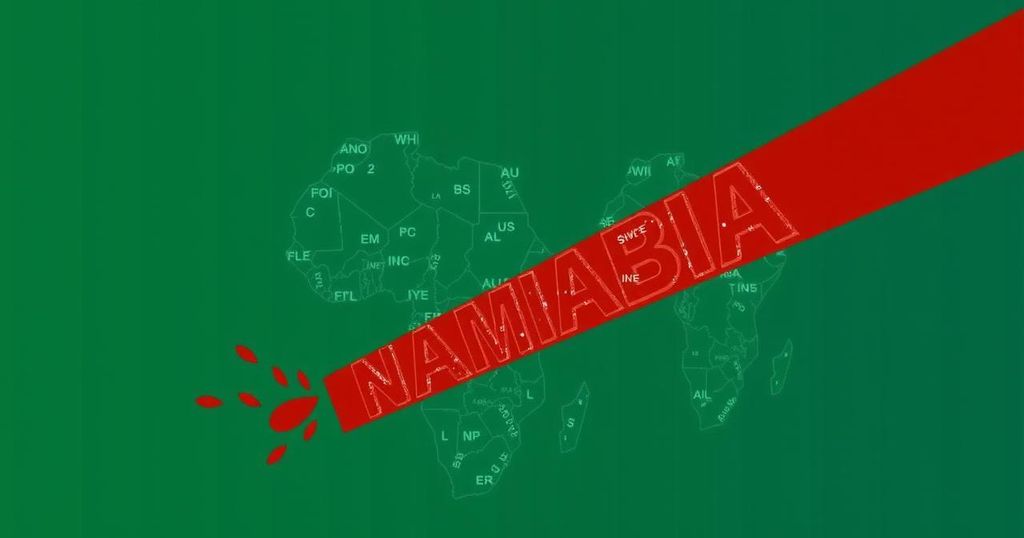Politics
AFRICA, BASED INSTITUTE FOR PUBLIC POLICY RESEARCH, BOTSWANA, DEMOCRACY, FR, FRELIMO, GOVERNANCE, GOVERNMENT, GRAHAM HOPWOOD, INSTITUTE FOR PUBLIC POLICY RESEARCH, KALAHARI, MOZAMBIQUE, NAMIB, NAMIBIA, PARLIAMENTARY SEATS, SOUTH AFRICA, SOUTH WEST AFRICA PEOPLE ’ S ORGANISATION ) PARTY OF NAMIBIA, SOUTHERN AFRICA, SOUTHERN AFRICAN, WINDHOEK
Fatima Khan
0 Comments
Namibia Elections 2024: A Potential Shift in Political Power Awaits
Namibia’s upcoming elections on November 27, 2024, are set to be the most competitive yet, challenging the long-standing rule of SWAPO amidst rising youth dissatisfaction. Key candidates include SWAPO’s Netumbo Nandi-Ndaitwah, who aims to become the first female president, and former SWAPO member Panduleni Itula, representing a significant opposition challenge. Key issues include economic inequality, unemployment, and corruption, with many voters seeking substantial changes. The political outcome will be significant for the nation’s future.
Namibia is poised for a highly competitive electoral showdown as it prepares for presidential and parliamentary elections on November 27, 2024. The ruling South West Africa People’s Organisation (SWAPO), which has maintained power since Namibia’s independence in 1990, faces substantial challenges amidst rising discontent among the youth and a noteworthy decline in its vote share over recent elections. In the context of shifting political tides throughout Southern Africa, where traditional parties are being ousted, this election could mark a pivotal moment for Namibia’s political landscape.
The elections will require approximately 1.45 million eligible voters to select their next president and members of the National Assembly from a pool of 21 parties vying for 96 parliamentary seats. The presence of 15 presidential candidates sets the stage for a diverse electoral battle, with candidates needing to secure more than 50 percent of the votes to win outright. If neither candidate reaches this threshold, a runoff between the top two candidates would occur — a scenario that has yet to unfold in Namibia.
The main candidates include Vice President Netumbo Nandi-Ndaitwah from SWAPO, who stands as the first female presidential contender and the current favorite. Despite her experience and support, concerns about her party’s declining popularity and the escalating frustrations from the electorate, particularly among younger voters, present significant obstacles. Graham Hopwood, the executive director of the Institute for Public Policy Research, remarked on the erosion of SWAPO’s appeal: “The allure of the liberation struggle is fading for SWAPO, because many young people can’t remember it.”
Panduleni Itula, the Independent Patriotic Front leader and former SWAPO member, poses a notable challenge to SWAPO by resonating with the youth and criticizing the government’s corruption and inefficiency. The opposition’s youth-focused message is especially pertinent given the staggering rates of unemployment and poverty across the nation. Additionally, leaders of smaller parties such as McHenry Venaani of the Popular Democratic Movement and Bernadus Swartbooi of the Landless People’s Movement are also vying to increase their influence in a fragmented opposition landscape.
The core issues driving this electoral contest encompass economic inequality, rampant unemployment, and pervasive corruption associated with the SWAPO administration. Namibia’s wealth, largely derived from its natural resources, remains skewed, leaving a significant portion of its population living in dire poverty. A recent drought further exacerbates food insecurity, making the electorate’s call for change ever more urgent.
As the elections approach, voters are filled with expectations for economic reform, land redistribution, and increased accountability from elected officials. The outcome of this election promises to shape Namibia’s trajectory and either reinforce or dismantle SWAPO’s long-standing political dominance. While the electoral process is anticipated to be peaceful, concerns about potential allegations of electoral fraud and a delay in results could emerge, reflecting the volatile political atmosphere that characterizes much of the region.
Ultimately, as citizens prepare to cast their votes, the stage is set for what could be a transformative moment in Namibia’s democracy, illustrating the intrinsic challenges and aspirations that accompany a significant electoral transition.
Namibia, a nation characterized by vast landscapes and sparse populations, has been governed by SWAPO since gaining independence in 1990. Despite a history of stability and democratic governance, recent elections in Southern Africa indicate a shift in political dynamics, prompting speculation about the potential dethroning of SWAPO amid increasing public discontent. The youth’s growing disenchantment and declining voter support for SWAPO suggest that election 2024 could redefine the political landscape in a country struggling with economic inequality and corruption.
The 2024 Namibian elections represent a crucial juncture for the country’s political future, with the ruling SWAPO facing unprecedented challenges from a more organized and determined opposition. The electoral process will not only determine the next leadership but also reflect the electorate’s desire for reform regarding economic inequality, housing, and governance. As the electorate prepares to make its choice, the implications of this election will likely resonate beyond Namibia, potentially influencing the wider Southern African region.
Original Source: www.aljazeera.com




Post Comment